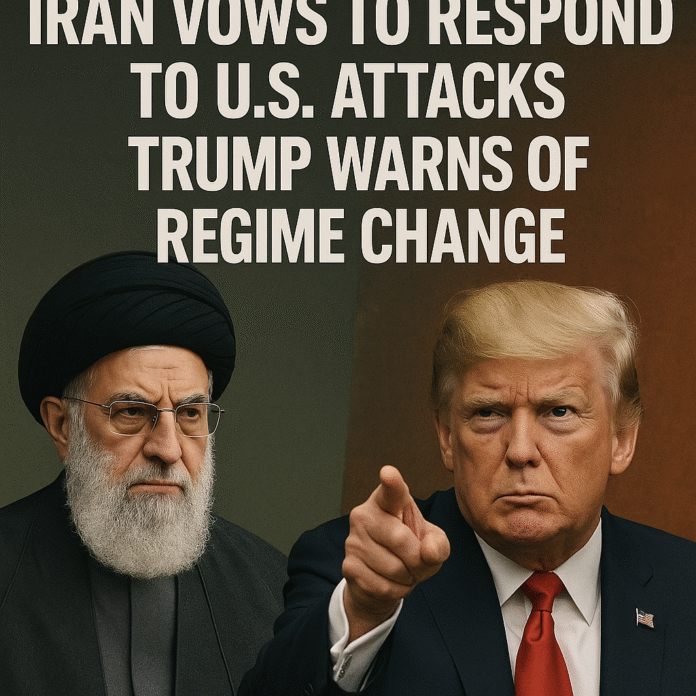Iran’s Supreme Leader, Ali Khamenei, has vowed to take action against “the Zionist enemy” following the United States’ involvement in attacks against his country.
President Donald Trump has raised the prospect of regime change in Tehran, suggesting that if the current Iranian leadership cannot restore Iran’s greatness, then a change in government might be necessary.
As Israel and Iran escalate their military exchanges, the world is on edge, anticipating Iran’s retaliation for the U.S. airstrikes on key sites in Fordow, Natanz, and Isfahan. The United Nations nuclear watchdog has not reported any increase in off-site radiation levels after these U.S. attacks.
Following the onset of Israel’s offensive on June 13, Iran claims that over 400 individuals have lost their lives, with more than 3,056 others injured. In Israel, Iranian strikes have reportedly resulted in at least 24 fatalities.
US lawmakers are voicing concerns over the legality of Trump’s military actions.
Senate Democratic Whip Dick Durbin released a statement asserting that Trump has overstepped constitutional boundaries by ordering strikes on Iran. He stated, “President Trump’s actions in bombing Iran put the US on the brink of a wider war in the Middle East, all without the necessary Congressional approval mandated by the constitution.”
According to the constitution, only Congress has the authority to declare war, although presidents can take military action in certain situations, especially to counter imminent threats.
While the Democratic party has been vocal in their opposition, some members of Trump’s own Republican party have also criticized these strikes. Representative Thomas Massie has called for a vote on legislation requiring Congressional approval for any military action against Iran.
In response, Trump took to Truth Social on Sunday, labeling Massie a “negative force” who doesn’t reflect the views of the Republican base.
Massie fired back, noting, “[Trump] declared so much War on me today it should require an Act of Congress.”
Oil prices have risen sharply in early trading today following US air strikes on Iran’s nuclear facilities, raising concerns about potential disruptions in energy markets.
As trading commenced, both Brent crude and the primary US oil contract, WTI, surged by over four percent, reaching their highest levels since January, as reported by AFP.
However, these gains were somewhat trimmed, with Brent trading up 2.2 percent at $79.20 per barrel and WTI increasing by 2.1 percent to $75.98 around 00:30 GMT.
Economists from MUFG mentioned to AFP that the “high uncertainty of the outcomes and duration of this war” could lead to an increase in oil prices by as much as $10 per barrel.










